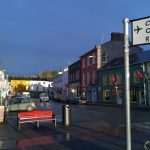A new feature section for Total Croatia News. With almost as many Croats living abroad as at home, it makes sense to have a section on the Croatian diaspora, to learn more about their communities, and the issues they face. We start with two rather amazing Australian ladies, who came to discover their Croatian roots, found them and then planted them deeper. An inspiring story of diaspora success on moving back to the homeland. Bravo Mare and Korana.
With a population of 4.2 million in Croatia and an estimated 3 million in the diaspora, Croatian life abroad should perhaps be better represented than it is currently, so TCN has decided to start a section dedicated to the sizable Croatian diaspora. News, features, interviews, with the aim to bring a diaspora flavour to the site.
With so many people yearning for the homeland, but perhaps not sure about how to make life in Croatia a success in these economically challenging times, we thought it best to start the diaspora feature with a fabulous success story of two young Australian Croatian ladies from Sydney, who not only moved to Split and survived, but who thrived through sheer persistance to build up a very impressive and well respected portfolio of hostels, bar, wine bar and quality restaurant in ten short years.
It was not easy! In order to find out how they did it, meet Korana Bucic and Maria Mustapic, who were aged just 23 and 24 when they made the big leap. Thinking of returning to the homeland? If they can do it, can you? TCN caught up with the dynamic duo on January 10, 2016.
You have been in Split for ten 10 years after moving from Sydney. You started your business at the back of UNESCO World Heritage Site of Diocletian’s Palace, then worked your way to the front and a view of the Adriatic. Tell us about the journey
K. I wish we had kept a diary, that is all I want to say. Maria came first, a couple of months before I did, and we came with the idea to open up a hostel. We travelled around, did a big trip around Europe, then went home but decided to move here. We spent two years planning but the research was hard, as there was very little information online about properties for rent back then. A hostel did not exist in Split, so we had nothing to compare it to. Maria came first.
M. I had a family friend who helped me, especially with the language. So many words I had never heard before. We found a few properies advertised, including one on the main square which had no water and cats living in it. Nobody had any idea what a hostel was, and people thought we were building a fancy hotel!
Finally we found a property in a great location, although it was a little smaller than we had hoped. We tried to get confirmation that we could open a hostel in a residential zone, and we were told it was fine, but nobody knew what a hostel was. We renovated, learned the language slowly, and kept on knocking on so many doors to push the paperwork forward. It was a lesson in the famous Croatian bureaucracy, as were pushed from place to place, but we kept on knocking, and eventually we got the help we needed, probably because people found us persistant and annoying, and we were obviously not going away.
It was all very foreign to us back then, all the laws and legalities.
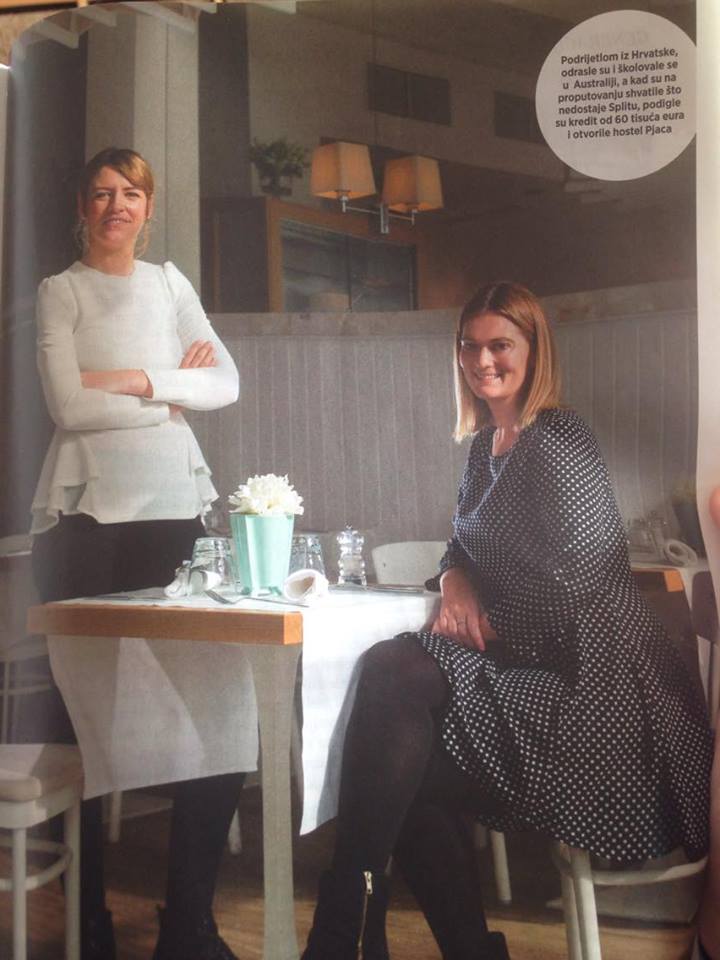
K. A major problem was that the category for a hostel did not exist. Every time the inspectors would come, they would say things like ‘your ceilings have to be this high’, and the requirements would change from visit to visit.
Did you speak Croatian when you came?
M. We thought we did! We could understand more than we could speak, and it was a matter of practising. We were so pumped, had a website prepared back home, shirts made. We were so excited, but then we saw the locals didn’t really take to the idea. So while we wore our hostel shirts in the hostel, we would change to walk to the tourist board for example, in case someone would egg us or something. At the beginning, we slept at the hostel and hung out with the guests, and that is what got us through that first year.
K. What was really strange was that usually when you start a new business like this, you distribute lots of flyers, but here things worked in reverse, and one old lady actually came and removed our Split Hostel sign from the street. It was very strange – and hard – for us. As a result most of our marketing was outside Split.
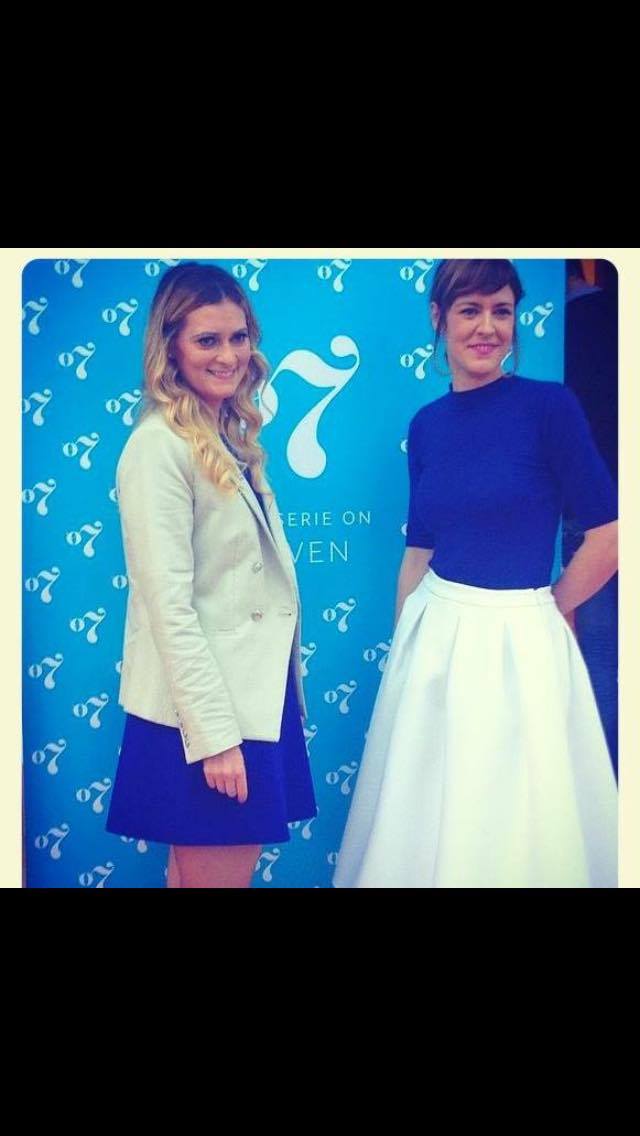
And what was your occupancy in that first year?
M. FULL! We were totally full. Until the end of November. It was one of those moments in life of being in the right place at the right time. If we had had the capacity for another 100 people, we would have been retired by now.
And we really had no idea how to run a hostel. We literally finished mopping the floors and then opened the next day, but had no idea of what to say to guests. We were role playing with each other. We had stayed in a hostel but never worked in one. And from the day we opened, it was crazy. The tourist board were very happy we had opened, and they basically sent everyone to us.
Locals who saw the place felt really sorry for us. They saw us as two crazy Aussie girls with no clue. Sleeping in bunk beds! More than one person told us that the war was over, and nobody would sleep there. Shared rooms?!? The concept of a hostel was from another world.
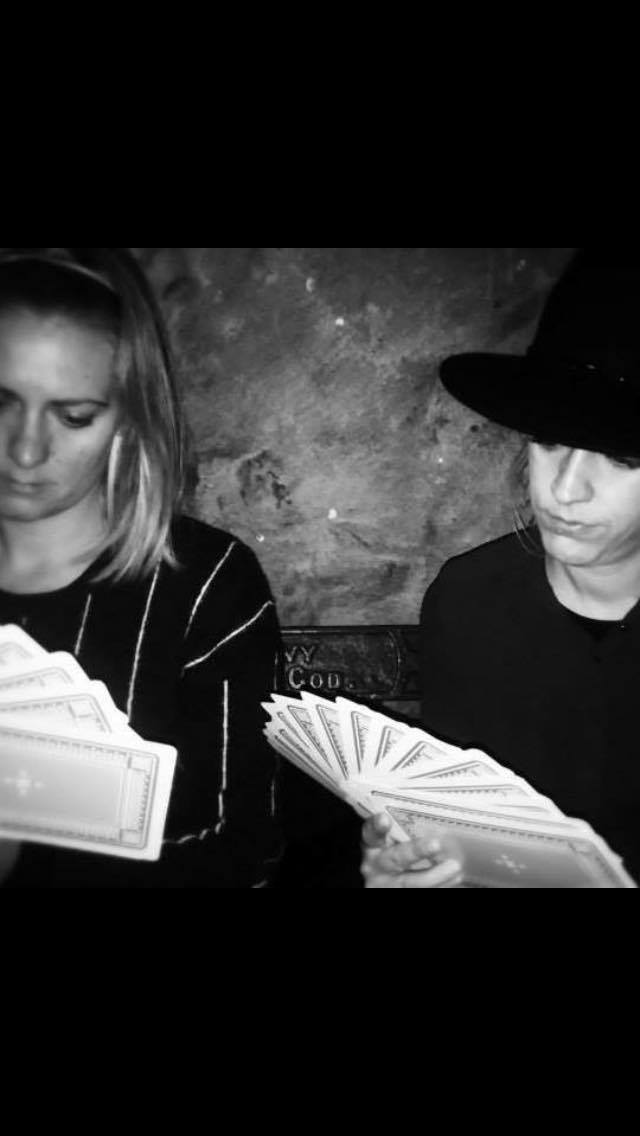
And then you opened Charlie’s Bar next door.
K. Actually before that we opened something called Fab Food, a healthy fast food joint on the main square. I think we were the first people to sell wraps. That was VERY funny. We had no idea what we were doing, but planned to be open for Split’s feast day of Sveti Duje in May.
We made all these Mexican wraps, Caesar salads, starting the day at 06:00 and went all the way through until 02:00, just the two of us without a break. Then we had a call from the hostel that there was no electricity, and finally Mare was doing the washing up and didn’t notice that the pipe was not properly connected. We ended up flooding the main square. A great start! We were so traumatised that we closed for two weeks after that first day.
Fab Food taught us something very important. We would work so hard, then get a five minute break and have a drink in the bar next door. And then we saw it – the waiter poured a couple of drinks and charged a good amount. No work at all. Do you have any idea the amount of effort and chopping that goes into running a healthy fast food place? It was time to open a bar!
You also have to understand how different Split was ten years ago. We had nowhere to take our guests out of the peak season. We could have been full in April, but the nightlife did not exist, and we would go out drinking with them by the bus station, so we were partying at the bus station. But rather than being happy for the business, the waiters were not so enthusiastic as they would have to stay open longer. How things have changed!
It just made sense for us to open a bar to service our guests, and it has turned out to be a great move, and Charlie’s is still a great bar today. Now there are many hostels in Split, and many bring their guests there. It really is a genuine backpacker bar. We also then expanded onto Hvar, with a joint venture in a hostel there.
And you expanded into the wine bar business with Zinfandel, not the first, but one of the first wine bars in Split.
M. Living in Sydney for 20 years, there is a lot of choice. We like to go out and eat, but we knew every menu by heart in Split (they were almost the same), and there was not really anywhere to go out and eat. It was either spend lots of money or have a coffee, with little inbetween, so we wanted to break that barrier. A more casual dining experience, but with a glass of wine if they wanted, or perhaps just a snack or a 3-course meal.
The property came up and it was perfect, and we were fortunate that the conservator understood what we were trying to do (Diocletian’s Palace is a UNESCO World Heritage Site), and we turned it into one of the first indoor/outdoor spaces in the city.
Croatia is of course the home of the original Zinfandel (the grape Crljenak Kastelanski), and this really helped with the branding, as well as offering strong recognition to American visitors. The locals really took to it, which was great, as we only had experience working for the tourist market. It was daunting, but it was very well accepted locally. That changed the gourmet scene a little in Split.
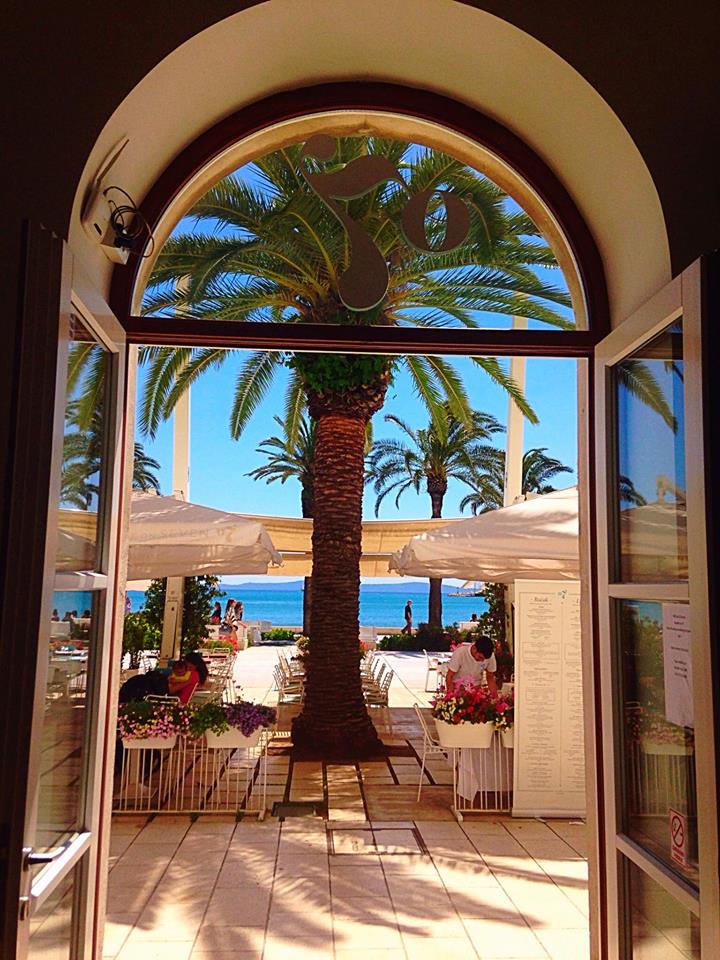
(Brasserie on 7, the latest venture)
You started at the back of Diocletian’s Palace with a hostel and a bar, expanded to the middle with a wine bar, and so the logical next step was to open the first quality restaurant on the cafe-laden stunning Split waterfront of Riva, in front of the palace.
M. It is not every day a property on Riva becomes available. The timing was not great, as Zinfandel had been open for just 8 months, so we thought we would try a brasserie concept, maintaining the cafe culture by day and casual dining breakfasts, then something more fancy at night. We were getting a little older, and for us it was a challenge to be part of something different.
We were very fortunate to meet Goran, our head chef. That was a huge moment for us. The team we have now are an absolute delight, and we have to laugh at how big it has become. We can remember a Christmas dinner party for just the two of us.
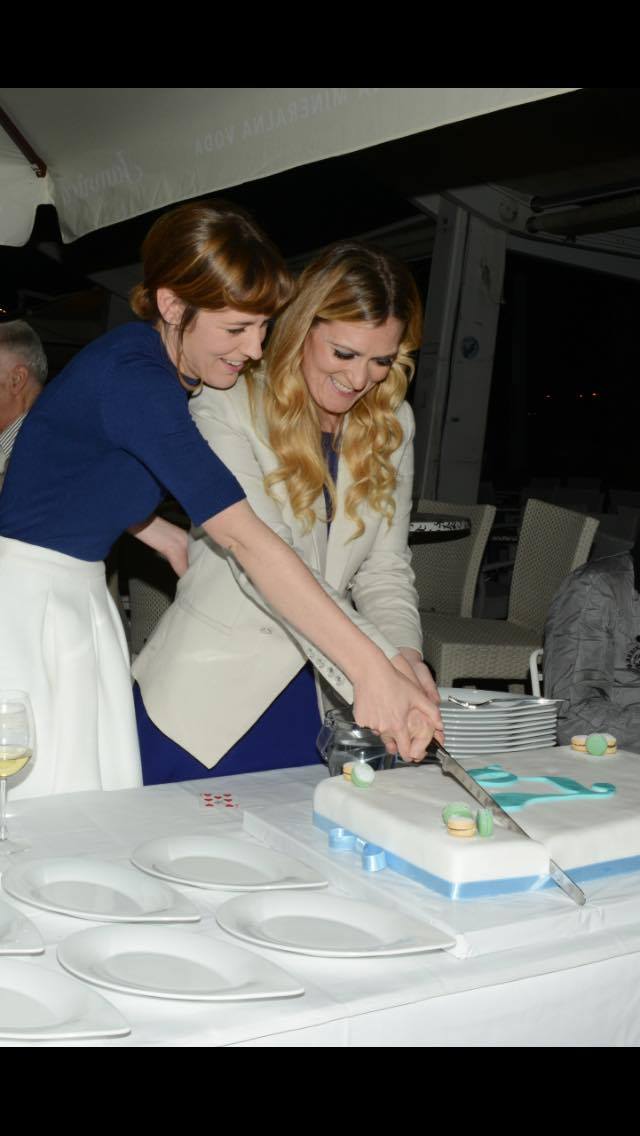
(Brasserie on 7, opening night)
So many foreigners came to Split in the 2004 property boom, so many failed and left. You are a shining exception. What is the secret?
K. We were young, and we had to stick it out. Failure simply was not an option. We just gave it everything we had. Persistence, persistence, persistence. We didn’t know anyone, or have any connections, so we just had to simply keep going. We just did everything the way it was supposed to be done, whereas a lot of people cut corners. We took a loan in Australia, so we had to make it work.

(TCN with legendary Hvar winemaker Andro Tomic on the opening night of Brasserie on 7)
Split ten years ago and Split today?
M. COMPLETELY different. In such a good way. Split has really come a long way. Music festivals, events, gourmet scene. So many options. I don’t feel like I live in the Eastern Bloc any more… The season has become longer, and there are so many more events. And if we keep on working together, we can keep on extending it. But in ten years, it really feels like moving from living in Eastern Europe to Western Europe.
Croatia men – are they attractive?
They do alright. We managed to find a husband each…
And five years from now?
K. Maybe a holiday. No, definitely slow down a little. Now we are young mothers and have that family routine of kindergartens etc, and I miss the adrenaline of being directly involved all the time. But we have such great staff, and it is so great to watch the operation running smoothly.


